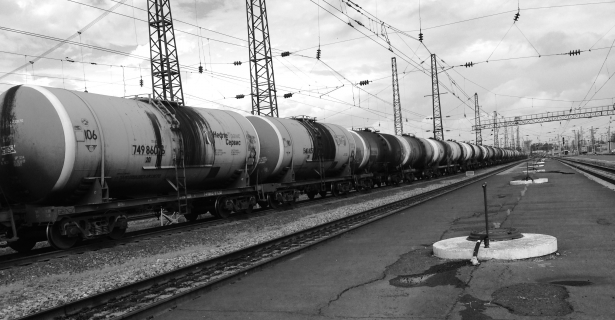After a tedious 30-minute negotiation across plexiglass, my stern-faced train ticket seller cracked the slightest smile when she finally handed me four tickets permitting passage 5,771 miles across the belly of Russia. The purchase had taken two in-person trips to a grungy Moscow train station, nearly two hours of queuing, and a volunteer “interpreter” who translated the ticket agent’s Russian into more Russian—an unusually kind move for a Muscovite likely motivated by a mix of desperation and pity. A preliminary test of my resolve, it was also a microcosm of the highs and lows that I would experience as I travelled from Moscow to Beijing using Russia’s own rickety railway, a series of marshrutkas (fixed-route minibuses), and Beijing’s brand new gleaming high-speed rail system.
My goal for the summer was to understand the growing bilateral relationship between Russia and China. To achieve this, political science generally advises examining the high-level policy priorities and interactions among elite politicians who sit comfortably in their respective capitals. It follows, then, that train travel spanning the two continents might be an exercise in futility if ones ultimate goal is to assess geopolitics. Everyday happenings and ordinary people in small towns outside Moscow and Beijing ought to have little to do with those who wield considerable power on the international stage.
What I have long suspected, but now fully understand is that while you can learn about a country from books, newspapers, and periodicals, unless you force yourself to have meaningful first-person encounters, you can’t know how the people who comprise that nation perceive themselves, their nationhood, their future. My time in Russia and China meeting with and talking to struggling single mothers, university students and professors, soldiers, border guards, bus drivers, oil industry workers, and entrepreneurs gave me insights into the insecurities which fuel the complex political dynamics at work in Moscow and Beijing.
When a self-proclaimed Siberian nationalist tells you teary-eyed about her father’s time in a labor camp, when a Babushka tells you that she supports President Putin because he has filled the grocery stores shelves with a variety of products, when a Soldier tells you of his deployment along the Russia-China border, your minds eye forms a picture that no newspaper or newsfeed can conjure. Traveling through Russia's resource-rich eastern Siberian oil shelf and passing a cargo train heading westward toward the capital with oil, coal, or timber nearly every hour underscores the animosity between Eastern and Western Russia—the former often feeling pillaged, misunderstood by the latter.
These anecdotal experiences and insights will—and have—heavily influenced my research questions and approach, deeply enriching my Master’s thesis project. Thanks to the Institute for Global Leadership for supporting this project and my sincere gratitude to all the Babushka Lenas and Uncle Alyoshas who secured my safe passage across a vast and complicated land while exercising patience with a traveler seeking more than a trip. More importantly, thanks for proving that common humanity can still persist over our increasingly sour geopolitical realities.


Add new comment